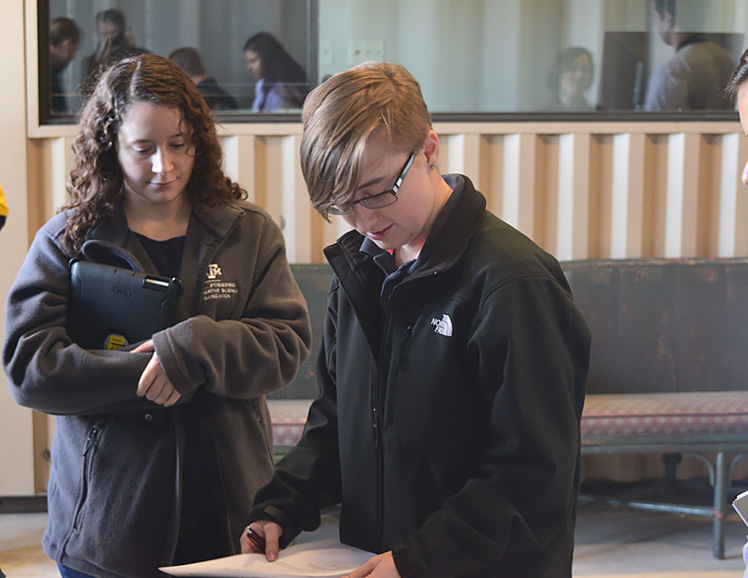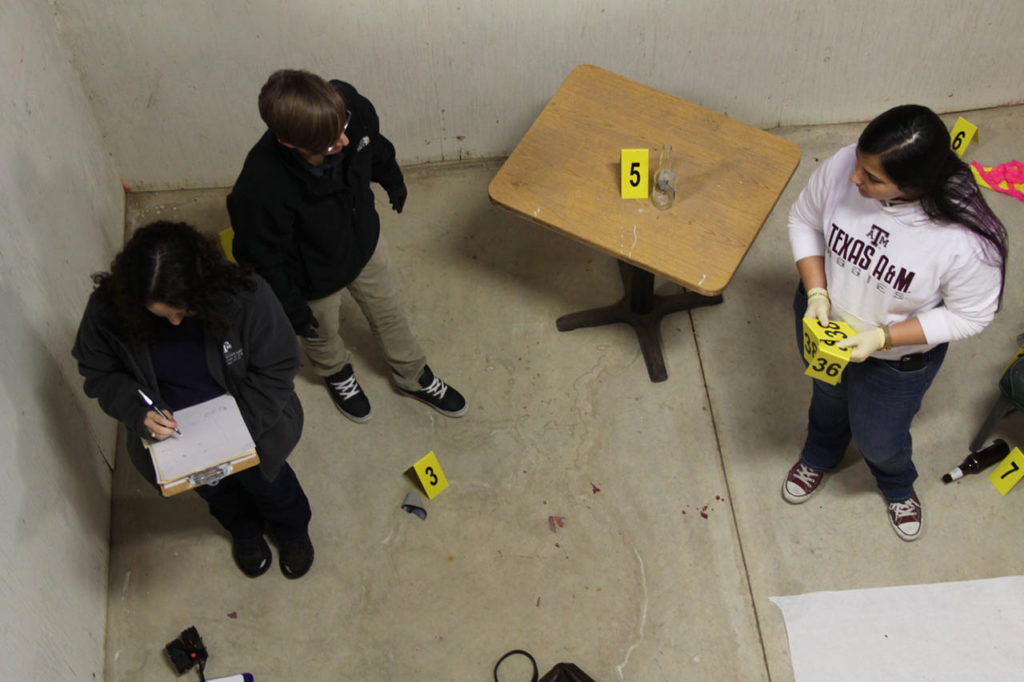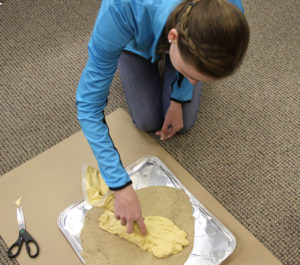
Stephanie Stratta, left, and Whitney West discussing notes during the mock crime scene exercise. Photo by Rob Williams
For seniors Whitney West and Stephanie Stratta, the dream of becoming certified forensic technicians just became reality this January as they received they became the first Forensic Technician certificate recipients of 2016.
West and Stratta, both senior Forensic and Investigative Science majors, just recently completed the Crime Scene Investigation course with 16 other students that was held at Riverside Campus during the week of January 11-16. The courses help Texas A&M students in the Forensic and Investigative Sciences program receive hands-on learning experience in crime scene investigation and other forensic techniques that are used in real life.

Forensics students Stephanie Stratta, left, Whitney West, and Emily Grimshaw working together at the mock crime scene. Photo by Rob Williams.
Some of the techniques learned included taking proper field notes, evidence protection and preservation. The students also learned how to sketch a crime scene and techniques on how to properly take photographs at crime scenes.

Emily Parsoneault working on a footprint cast during a hands-on demonstration
The hands-on activities prepared students for a mock crime scene that was set up inside Texas A&M Engineering Extension’s live-fire shoothouse located behind the firing range. Students received the chance to test their skills out during the exercise, where they were given a chance to comb through evidence around the area to solve a mock crime.
Stratta enjoyed the class and said she was ready for the mock crime scene exercise. She said her favorite parts of the class were the hands-on activities.
“It has been a fun class and I learned a lot,” she said. “I’m excited to see how much I learned by Friday.”
West said the best part of the CSI course was that everything was interactive and helped her learn more about how crime scene investigators work in the field.
“The best part of about the CSI class was getting hands-on experience in the field,” she said. “I’m a hands-on learner and having this class has helped me gain an understanding of what life as an investigator is like.”
West plans to attend graduate school in the future, where she will pursue a master’s degree in forensic Science.
“I’m happy to receive my certification,” she said. “It has been a rewarding experience.”
The Forensic and Investigative Sciences degree program at Texas A&M prepares students for careers that involve the collection, preservation, processing and use of evidence and information to solve problems. These careers include law, medicine, homeland security, public safety, political science, environmental quality, agriculture, public health, chemistry, anthropology, physics, computer science and business.
The partnership between the academic Forensic and Investigative Sciences program within the Department of Entomology and the vocational training provided by the Texas A&M Engineering Extension Service’s Texas Forensic Science Academy is an example of a multi-agency partnership putting students first. This partnership between faculty and students of TAMU’s Forensic and Investigative Sciences program and experts from TEEX’s Forensic Science Academy continues to strengthen the curriculum at Texas A&M and offer students an opportunity to participate in cutting-edge technologies and current field methods.